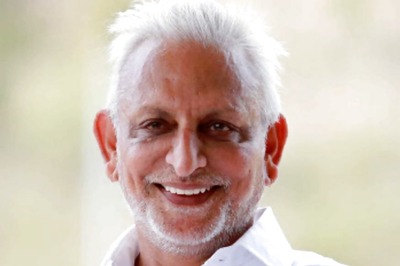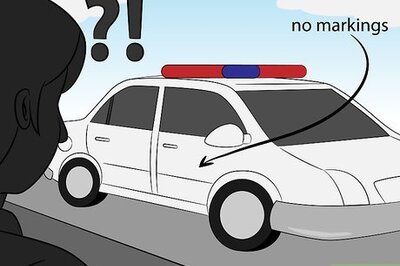
views
Melbourne: The passenger who abused and assaulted Indian taxi driver Lakhbir Singh over the weekend in the St Kilda suburb of Melbourne has been identified by the police as authorities gear to stop further attacks on cabbies.
"The occupant of the taxi has been identified and is assisting the police with enquiries. The matter is now with investigators," a spokesperson for the Victoria Police said.
After the recent spate of attacks on cabbies in the city, largely hailing from the Indian subcontinent, the Victorian Government mandated the use of security screens for all taxi drivers.
"Once this measure comes into effect later this year, it is my hope that such incidents will no longer occur here in Melbourne. The state government is taking this problem very seriously and is putting in place many measures, including a campaign to make the general public more aware of how to interact with personnel in the services sector. Hopefully, this will soon reduce if not remove the dangers currently being faced by taxi drivers here," Indian Consul General in Melbourne, Anita Nayar said.
On Saturday at about 11:50 pm, Singh had picked up a passenger on Fitzroy Street, who had requested to be driven to the city. The passenger became verbally abusive because the cabbie stopped at an amber traffic light.
The 23-year-old cabbie, who has been in Australia for the past two years, then stopped the taxi and told the passenger, who's abuse was escalating and who even labelled him a "slave", to get out of the taxi.
The passenger got out, but left the door open. The cabbie then got out of the taxi and walked around to close the door, when the passenger repeatedly kicked and punched the driver and used a credit card imprinter to strike the cabbie, causing deep cuts to his fingers.
"He abused me. He said 'you don't know how to drive'. He called me a 'little slave'", Singh, who immediately reported the assault to the police, told the local media.
According to reports, the passenger had even spoken to someone on his mobile, asking whether he should bash the cabbie. Cab drivers are seen as soft targets, but improved on-board security equipment has made it easier to identify assailants.
"It is indeed unfortunate that taxi drivers are being targeted and there may be some racism involved though I do not think that is the sole or even the primary motivation behind all such incidents. The consulate will continue to interact closely with the Victorian government and other relevant stakeholders on this issue for positive outcomes in the future", Nayar said.
Three months ago, the near fatal stabbing of Indian student cabbie Jalvinder Singh had sparked an unprecedented protest by cab drivers, who brought Melbourne's central business district to a standstill.
"I am unable to drive a taxi again because of the serious injuries sustained in my left shoulder and one rib has been damaged. My parents and friends are supporting me, but I am looking for a job to sustain me and save enough for an air ticket back home," Jalvinder, who is still recuperating at home and unable to resume his studies, said.
Hailing from village Kabul Pur Khera in Karnal district of Haryana, Jalvinder had enrolled in a hospitality course at the Carrick Institute of Education in Melbourne in July 2007, and had been driving a taxi part-time to support himself and meet the increasing cost of living, like many of the about 12,000 Indian overseas students enrolled in various universities in Melbourne.
Earlier, calls for more security for Melbourne taxi drivers from violent passengers were intensified when in December last year, another taxi driver of Indian origin, 25-year-old Baljinder Singh, had sustained stab wounds inflicted by a fare-evading passenger.
In August 2006, 27-year-old part-time taxi driver Rajneesh Joga was killed when a 20-year-old man tried to hijack his taxi by pushing him out of the moving vehicle. Joga, who hailed from Hyderabad, was doing his Master of Accountancy at the Royal Melbourne Institute of Technology.




















Comments
0 comment